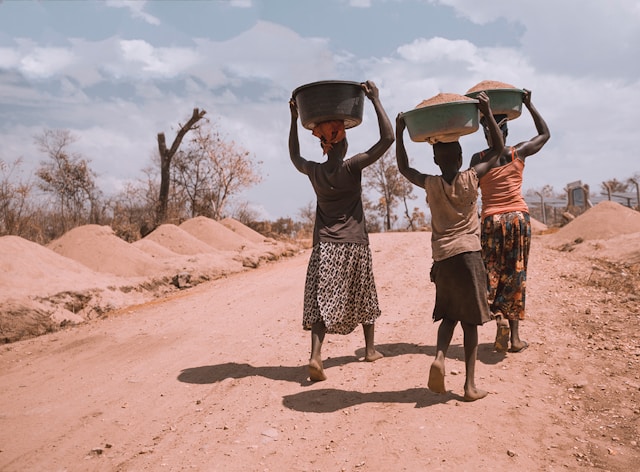- The Gendered Impact of Human Trafficking in Africa: Addressing the Vulnerability of Women and Girls
Introduction Human Trafficking: A crime that shames us All.[1] Human trafficking remains one of the most pressing human rights violations in Africa, with women and girls facing the most severe forms of exploitation.[2] While increased mobility across the continent has expanded economic opportunities, it has also been exploited by traffickers. Women and girls who fall…
- Israel’s Recognition of Somaliland: Does the Ankara Declaration Preclude Ethiopia from Reconstituting the Maritime Accord?
Introduction Somaliland, a breakaway region of Somalia has remained a de facto independent state since 1991.[1] Historically, the unified state of Somalia did not exist as an independent sovereign entity until 1960.[2] Before the unification of Somaliland and Somalia, the territories were administered by local regional leaders. In the 1880s the region was divided by…
- The Message Communicated to African Regionalisation Following the Creation of the Alliance of Sahel States-AES
Introduction The Alliance of Sahel States, also known in French as the ‘Alliance des Etats du Sahel’ (AES), is a confederation formed by Burkina Faso, Niger, and Mali.[1] The AES was established in September 2023, following the adoption of the Charter of Liptako-Gourma, which establishes the Alliance of Sahel States.[2] The AES Charter was signed…
- Investment and Investor Protection in Somalia
Introduction With Somalia’s accession to the East African Community (EAC), the internal market of this community is also becoming increasingly attractive for foreign investments. A common market with over 300 million populations is developing, and there is not only a common internal market. It also has an excellent strategic location from the Indian Ocean to…
- The East African Community: Past Experiences and Lessons for the Future
Introduction The East Africa Community (EAC) is one of the oldest regional economic blocs in the world.[1] Uganda, Kenya, and Tanzania, as members of EAC, had a customs union as early as 1927.[2] While this regional bloc collapsed in 1977, it was re-established in 2000 and grew from three to eight countries, including Uganda, Kenya,…
- The Legal Analysis of Community Rights in Environment Decision-Making in the Federal Republic of Somalia
Introduction People often feel hopeless and powerless to protect the environment, themselves, their families and their individual rights. However, through the creative use of the law, a number of notable successes for the environment and people have been recorded in many countries.[1] Environmental decision-making in Somalia stands at the intersection of legal, social, and environmental considerations, with…
- The Message Communicated to African Regionalisation Following the Creation of the Alliance of Sahel States-AES
Introduction The Alliance of Sahel States, also known in French as the ‘Alliance des Etats du Sahel’ (AES), is a confederation formed by Burkina Faso, Niger, and Mali.[1] The AES was established in September 2023, following the adoption of the Charter of Liptako-Gourma, which establishes the Alliance of Sahel States.[2] The AES Charter was signed…
- How African countries are managing the potentially catastrophic risks of just transition through the investment regime
Introduction Foreign investment has long been an important policy tool for countries seeking to transform their economies. The international investment regime—comprising treaties and institutions—has supported this objective by creating policies to attract and protect investment. For developing countries, foreign investment plays a particularly crucial role in alleviating poverty, generating employment opportunities, and fostering economic…
- The Fate of the SADC Tribunal After Zimbabwe’s Recent Move to Compensate the FTLRP Affected White Farmers
Introduction On 12 February 2025, the Finance Minister of Zimbabwe announced that the government of Zimbabwe intends to compensate 94 former farmers who were affected by the ‘Fast Track Land Reform Programme’ (FTLRP). Such farmers include the nationals of the United Kingdom (UK), Switzerland, Denmark, Germany, the Netherlands, and the former Yugoslavia. [1] This is…




